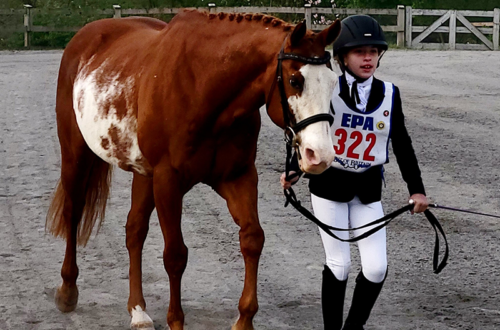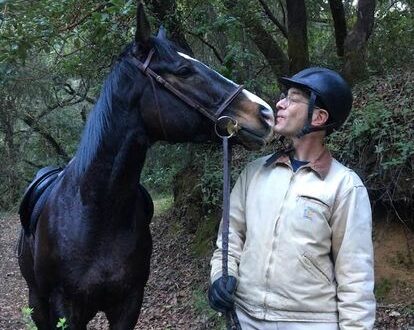
Merck Animal Health presents: Mosquitoes Abuzz – West Nile Virus May be in the Air
Prevention remains key to protecting horses from this devastating disease
Flowers aren’t the only thing in bloom. With many parts of the country experiencing a mild winter, mosquito populations may be particularly abundant this spring. That means an increased risk of your horse contracting West Nile virus (WNV). Now is the time to think about prevention.

West Nile virus remains the leading cause of arbovirus encephalitis in horses and humans in the United States. Transmitted by mosquitoes that can infect horses and humans, WNV has been detected in horses in all 48 continental states, as well as most of Canada and Mexico.
Thanks to vaccination, the number of annual WNV cases in horses has declined significantly since the disease first appeared in the United States in 1999; however, the threat remains and we cannot become complacent with vaccination. In 2016, 377 equine cases of West Nile virus (WNV) were reported from 32 States – that’s 152 more cases than in 2015 (1). That means more than 300 horse owners had to watch their horse suffer through this unforgiving disease, with some losing the battle.
There are many reasons WNV is a core vaccine recommendation(2)for all horses:
• WNV poses a significant threat to unvaccinated horses
• Once a horse is infected and showing clinical signs, mortality rates can reach over 30 percent
• There is no treatment for the virus itself, just support for the clinical signs
• Of the horses that do survive, only about 60-80 percent experience a full recovery (3)
• Annual vaccination, and minimizing your horse’s exposure to mosquitoes (eliminate standing water on property, use mosquito repellents, and stabling horses at dawn and dusk when mosquitoes are most active) are the best methods of prevention
• Horses residing in areas where disease is endemic are particularly susceptible and may require more frequent vaccination
Consult your veterinarian immediately if you see any of these signs in your horse:
• Depression
• Low-grade fever
• Change in behavior
• Muscle fasciculations (twitching)
• Incoordination/ataxia
• Cranial nerve deficits (such as head tilt, ear droop, difficulty swallowing)
• Recumbency (inability to rise after laying down).
Ask any veterinarian and they’ll tell you there is nothing more heartbreaking than watching an animal suffer from a disease that could have been prevented through a simple vaccination. Don’t let your spring get interrupted by an infectious disease such as WNV. Talk to your veterinarian today. For more information, visit GetVaccinatingRight.com.
1 USDA APHIS 2016 Summary of West Nile Virus Equine Cases in the United States. February 2017.
2 AAEP Vaccination Guidelines (www.aaep.org.)
3 Wilson JH, Davis A, Bender JB, Minicucci, LA. Residual Effects of West Nile Viral Encephalomyelitis in Horses. In: 49th Annual Convention of the American Association of Equine Practitioners, 2003, New Orleans, Louisiana, (Ed.)
Copyright © 2017 Intervet Inc., d/b/a Merck Animal Health, a subsidiary of Merck & Co., Inc.





